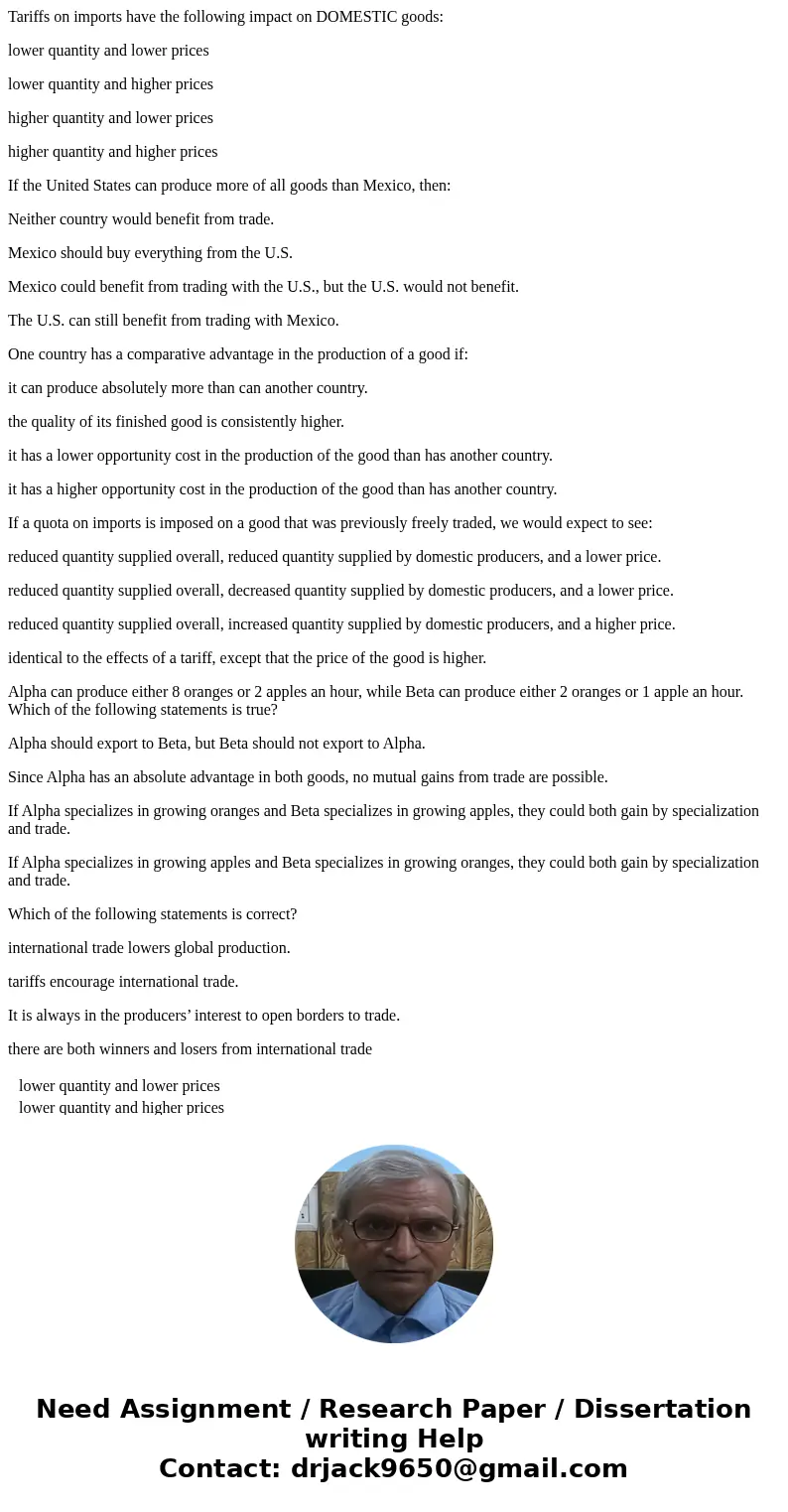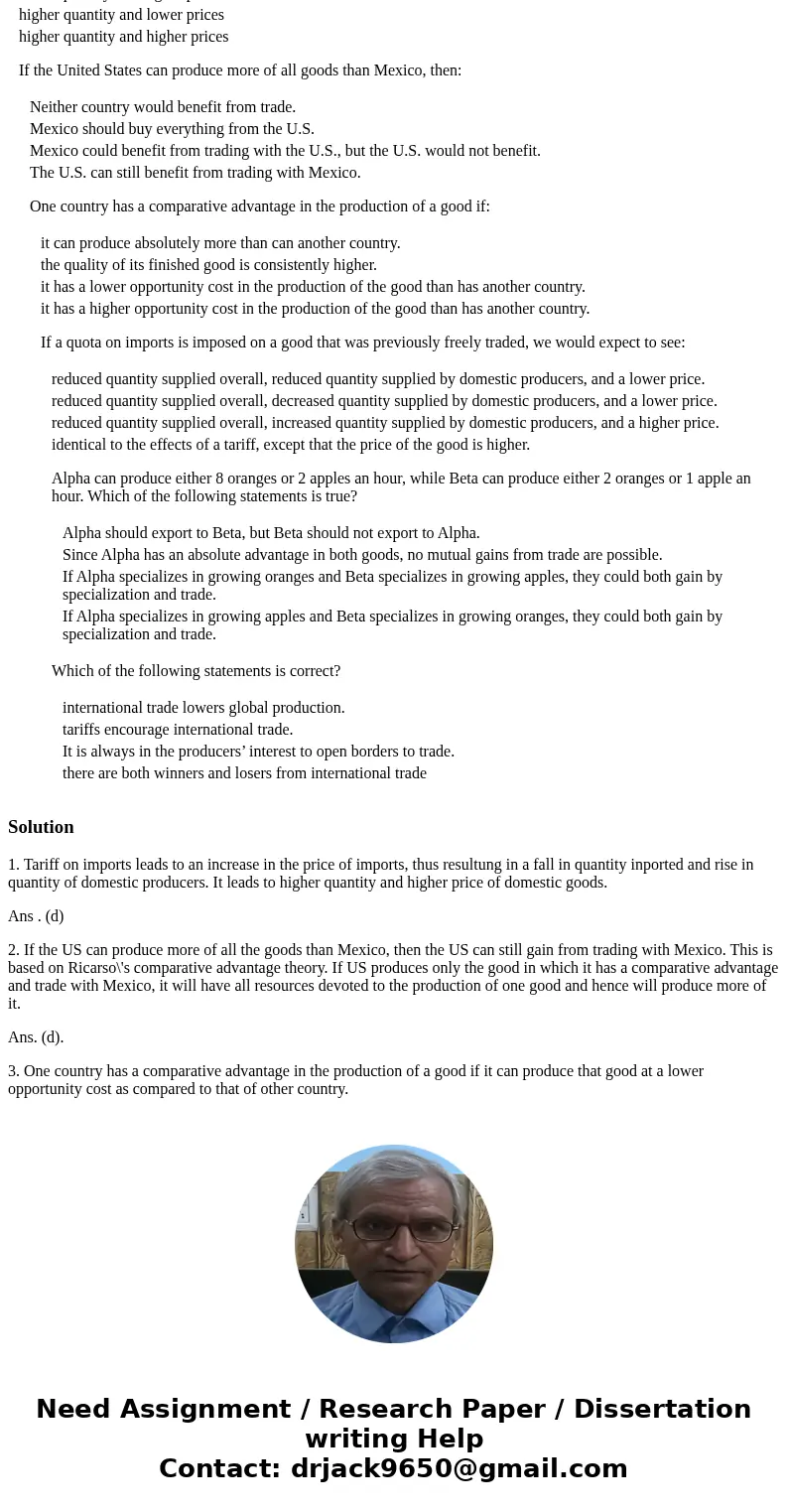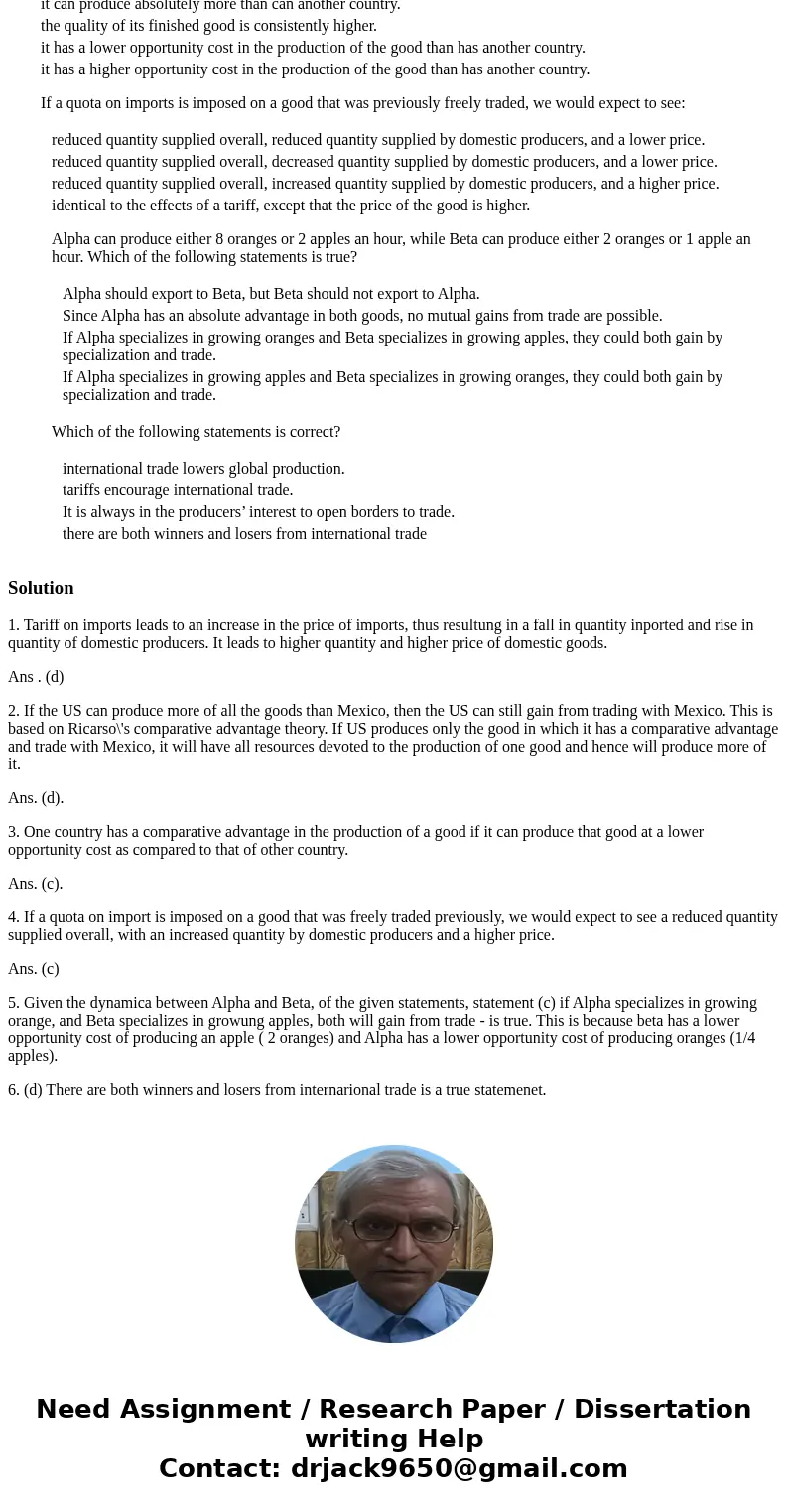Tariffs on imports have the following impact on DOMESTIC goo
Tariffs on imports have the following impact on DOMESTIC goods:
lower quantity and lower prices
lower quantity and higher prices
higher quantity and lower prices
higher quantity and higher prices
If the United States can produce more of all goods than Mexico, then:
Neither country would benefit from trade.
Mexico should buy everything from the U.S.
Mexico could benefit from trading with the U.S., but the U.S. would not benefit.
The U.S. can still benefit from trading with Mexico.
One country has a comparative advantage in the production of a good if:
it can produce absolutely more than can another country.
the quality of its finished good is consistently higher.
it has a lower opportunity cost in the production of the good than has another country.
it has a higher opportunity cost in the production of the good than has another country.
If a quota on imports is imposed on a good that was previously freely traded, we would expect to see:
reduced quantity supplied overall, reduced quantity supplied by domestic producers, and a lower price.
reduced quantity supplied overall, decreased quantity supplied by domestic producers, and a lower price.
reduced quantity supplied overall, increased quantity supplied by domestic producers, and a higher price.
identical to the effects of a tariff, except that the price of the good is higher.
Alpha can produce either 8 oranges or 2 apples an hour, while Beta can produce either 2 oranges or 1 apple an hour. Which of the following statements is true?
Alpha should export to Beta, but Beta should not export to Alpha.
Since Alpha has an absolute advantage in both goods, no mutual gains from trade are possible.
If Alpha specializes in growing oranges and Beta specializes in growing apples, they could both gain by specialization and trade.
If Alpha specializes in growing apples and Beta specializes in growing oranges, they could both gain by specialization and trade.
Which of the following statements is correct?
international trade lowers global production.
tariffs encourage international trade.
It is always in the producers’ interest to open borders to trade.
there are both winners and losers from international trade
| lower quantity and lower prices | ||||||||||||||||||||||||||||||||||||||||||||||||||||||||||||||
| lower quantity and higher prices | ||||||||||||||||||||||||||||||||||||||||||||||||||||||||||||||
| higher quantity and lower prices | ||||||||||||||||||||||||||||||||||||||||||||||||||||||||||||||
| higher quantity and higher prices If the United States can produce more of all goods than Mexico, then:
|
Solution
1. Tariff on imports leads to an increase in the price of imports, thus resultung in a fall in quantity inported and rise in quantity of domestic producers. It leads to higher quantity and higher price of domestic goods.
Ans . (d)
2. If the US can produce more of all the goods than Mexico, then the US can still gain from trading with Mexico. This is based on Ricarso\'s comparative advantage theory. If US produces only the good in which it has a comparative advantage and trade with Mexico, it will have all resources devoted to the production of one good and hence will produce more of it.
Ans. (d).
3. One country has a comparative advantage in the production of a good if it can produce that good at a lower opportunity cost as compared to that of other country.
Ans. (c).
4. If a quota on import is imposed on a good that was freely traded previously, we would expect to see a reduced quantity supplied overall, with an increased quantity by domestic producers and a higher price.
Ans. (c)
5. Given the dynamica between Alpha and Beta, of the given statements, statement (c) if Alpha specializes in growing orange, and Beta specializes in growung apples, both will gain from trade - is true. This is because beta has a lower opportunity cost of producing an apple ( 2 oranges) and Alpha has a lower opportunity cost of producing oranges (1/4 apples).
6. (d) There are both winners and losers from internarional trade is a true statemenet.



 Homework Sourse
Homework Sourse